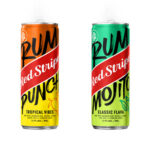The Spirits Pool Association Defends Jamaican Rum’s Integrity
The fight for the integrity of Jamaica Rum continues. The Spirits Pool Association, which represents most of Jamaica’s rum distilleries, has firmly rejected recent arguments supporting the aging of Jamaican rum outside the country. This stance directly responds to attorney and rum consultant Howard Mitchell, who recently endorsed the idea of aging Jamaican-distilled rum abroad.
At the heart of the controversy lies one key question: Should rum distilled in Jamaica but aged overseas still carry the label “Jamaican Rum”? The debate has divided stakeholders in an industry that exports more than US$200 million in rum yearly.
GI Rules Cement Local Aging Standards
To preserve the reputation and authenticity of Jamaican rum, the spirits industry created a geographical indication (GI) in 2016. This standard defines the specific production methods required for a rum to earn the “Jamaican” designation. Recently, the Jamaica Intellectual Property Office (JIPO) updated the GI to state that aging must occur exclusively in Jamaica.
The Spirits Pool Association fully supports this revision. Chairman Clement ‘Jimmy’ Lawrence emphasized the importance of this rule, telling The Gleaner, “Permitting foreign aging under the ‘Jamaica Rum’ label would erode this distinctiveness. It would invite competitors to manipulate Jamaican-distilled bulk rum into products with different profiles that do not represent Jamaican craft or conditions.”
Legal Pushback from National Rums of Jamaica
Not all distillers agree with the decision. National Rums of Jamaica Limited (NRJ), a medium-sized producer, has challenged the GI amendment in court and filed a complaint with the Fair Trade Commission. NRJ argues that the rule could create unfair competitive barriers.
Despite this challenge, the Spirits Pool Association insists on protecting the integrity of Jamaican rum. “Sacrificing local aging in the name of flexibility weakens the brand,” the group told The Gleaner. “Instead, we should focus on premiumization, branding, and keeping as much of the value chain—especially aging and bottling—within Jamaica. That’s where jobs, skills, and revenue can grow.”
Tropical Aging: A Unique Advantage
The association also points to the scientific and commercial benefits of tropical aging. Rum aged in Jamaica matures two to three times faster than in temperate regions like Europe. In practice, this means five years of aging in Jamaica can match 10 to 15 years of aging elsewhere in terms of flavor development.
Chairman Lawrence drew a comparison with other iconic spirits: “Scotch whisky must be aged in Scotland. Cognac must be aged in the Cognac region of France. Tequila must be aged in Mexico,” he said in The Gleaner interview. “These GIs protect terroir, not because they reject trade, but because they preserve authenticity. Jamaican rum deserves no less respect.”
Mitchell’s Counterpoint: Focus on Fermentation and Distillation
Howard Mitchell offered a different view in his Sunday Gleaner opinion column, “Why Jamaica Must Defend Its Rum Heritage and Its Future.” He argued that rum fermented and distilled in Jamaica remains authentically Jamaican, even if aged abroad.
He noted that overseas aging has occurred for more than 100 years—long before the GI existed—and believes that fermentation and distillation outside of Jamaica pose a far greater threat to the nation’s rum identity.
Mitchell also addressed speculation about foreign interests influencing the debate. NRJ’s ownership structure includes the Jamaican government, Guyana-based Demerara Distilleries, and Maison Ferrand of France. “To characterize NRJ’s approach as somehow unpatriotic is unfair and unhelpful,” he added.
Upcoming Court Battle to Define Industry’s Future
The legal challenge brought by National Rums of Jamaica will go before the Supreme Court next Tuesday. The hearing will address preliminary legal questions before the case proceeds to trial. NRJ is appealing the JIPO decision and will face four defendants: the Registrar of Industrial Properties, Shantal English, Spirits Pool Association, and J. Wray & Nephew Limited.
The outcome of this case could determine whether Jamaican rum producers can legally age their products abroad while still labeling them as “Jamaican.”
From Casks to Cocktails—We’ve Got You Covered! Sign up for expert insights, tasting notes, and everything rum-related!
Source of information
The Gleaner Article — Rum fight getting more spirited, written by staff
The image of the article is courtesy of © Veeterzy via Canva.com





